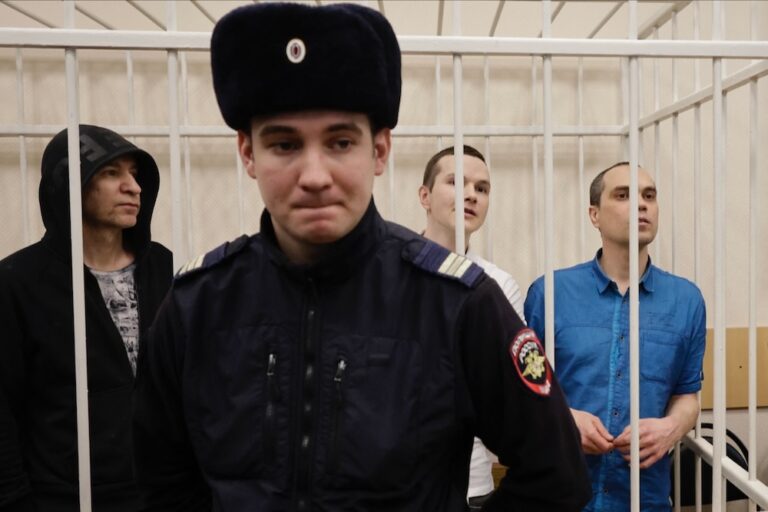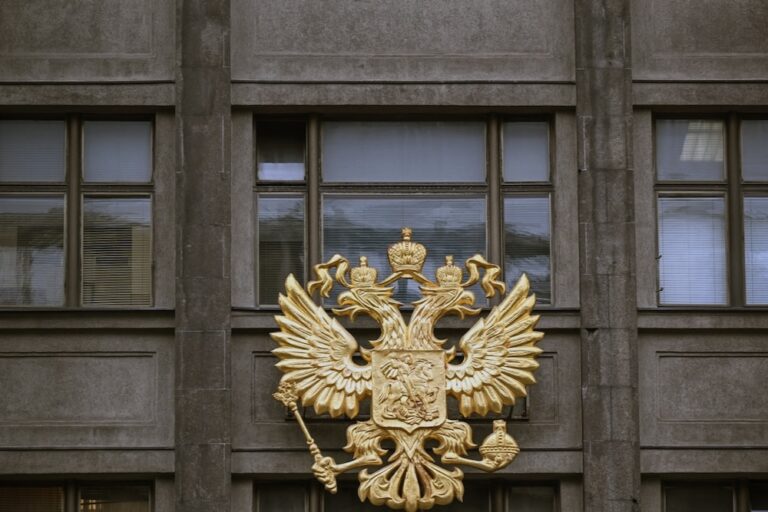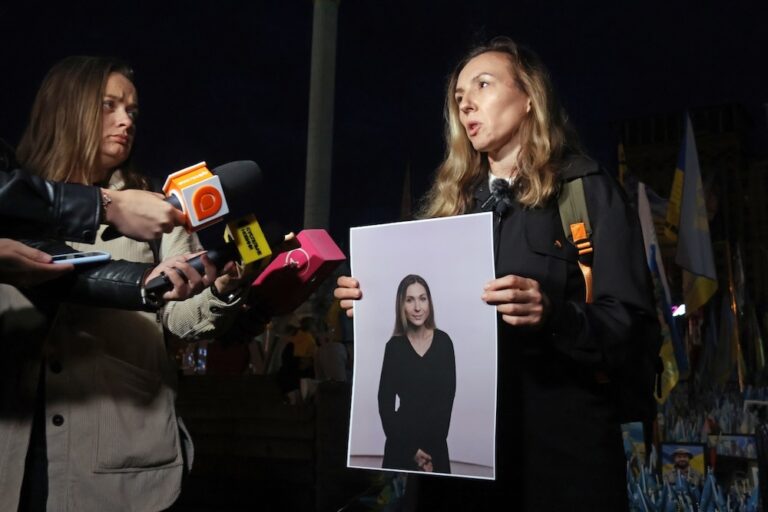(RSF/IFEX) – The following is an RSF press release: **Updates IFEX alerts of 11 March and 17 February 1999, 14 October, 21 May and 11 May 1998** Russia Reporters sans frontières asks for Grigory Pasko’s acquittal On 6 June 1999, a military court in Vladivostok (in Russia’s far east region) will likely issue its verdict […]
(RSF/IFEX) – The following is an RSF press release:
**Updates IFEX alerts of 11 March and 17 February 1999, 14 October, 21 May
and 11 May 1998**
Russia
Reporters sans frontières asks for Grigory Pasko’s acquittal
On 6 June 1999, a military court in Vladivostok (in Russia’s far east
region) will likely issue its verdict in the eight-month “in camera” trial
of Grigory Pasko, a correspondent with the Russian Pacific Fleet’s
newspaper, Boevaya Vakhta, and contributor to the Japanese television
station NHK. Reporters sans frontières is calling for Grigory Pasko’s
acquittal and denouncing the conditions under which his trial took place.
Incarcerated at the Vladivostok high-security prison since 20 November 1997,
Grigory Pasko is accused of “high treason” for his 1993 filming of
radioactive waste from Russian submarines being emptied into the Sea of
Japan. He may be sentenced to a fifteen to twenty year prison term for
“disclosure of state secrets”, under Article 275 of the Russian penal code.
Confirmed by international environmental organisations, the information
distributed by the journalist is mostly of a public nature and cannot be
considered a state secret. In 1993, a Greenpeace ship filmed the dumping of
radioactive waste into the Sea of Japan and measured the area’s degree of
contamination. Up to now, Grigory Pasko has spent almost seventeen months in
“preventive” detention based on these false allegations.
Despite lawyers’ request that the trial be open to the public and that it be
held in another location in order to avoid pressure from local military
personnel, the Supreme Court decided in November 1998 to keep it in camera.
This resulted in a number of irregularities. On 28 January 1999, Karen
Nersissian, one of Grigory Pasko’s principal lawyers, was challenged, as the
military judges deemed that he had contravened the notice prohibiting him
from communicating information on the case. On 23 April, after more than a
year and a half of investigation, Yuri Ralin, a witness in the case, finally
admitted that in early 1998, he had been pressured and forced by
intelligence services investigators to give false testimony in an effort to
implicate the journalist. According to information collected by Reporters
sans frontières, on 6 May, the president of the court prohibited Grigory
Pasko from making mention of irregularities which allegedly took place
during his arrest while testifying.
It is Reporters sans frontières’ view that Grigory Pasko’s activities fall
within the context of his professional duties: “every journalist has the
right to search, ask, receive or distribute information”, according to
Article 47 of Russia’s media law. It should also be noted that the
withholding of information concerning the environment or catastrophes which
endanger human lives is against the law according to Articles 41 and 42 of
the Russian Constitution. This crime is punishable by a sentence of up to
five years’ imprisonment (Article 237 of the penal code). Finally, Reporters
sans frontières also recalls that Article 5 (paragraph 3) of the European
Convention on Human Rights – of which Russia is a signatory – guarantees
everyone the right to be tried in a reasonable time frame or released during
the proceedings. Moreover, Article 6 of the Convention stipulates that each
person has the right to a fair and impartial trial.
Considering that Grigory Pasko’s activities are protected by Article 10 of
the European Convention on Human Rights, which stipulates that each person
has the right to freedom of expression and information, our organisation is
asking Russian authorities for his acquittal and immediate release.


